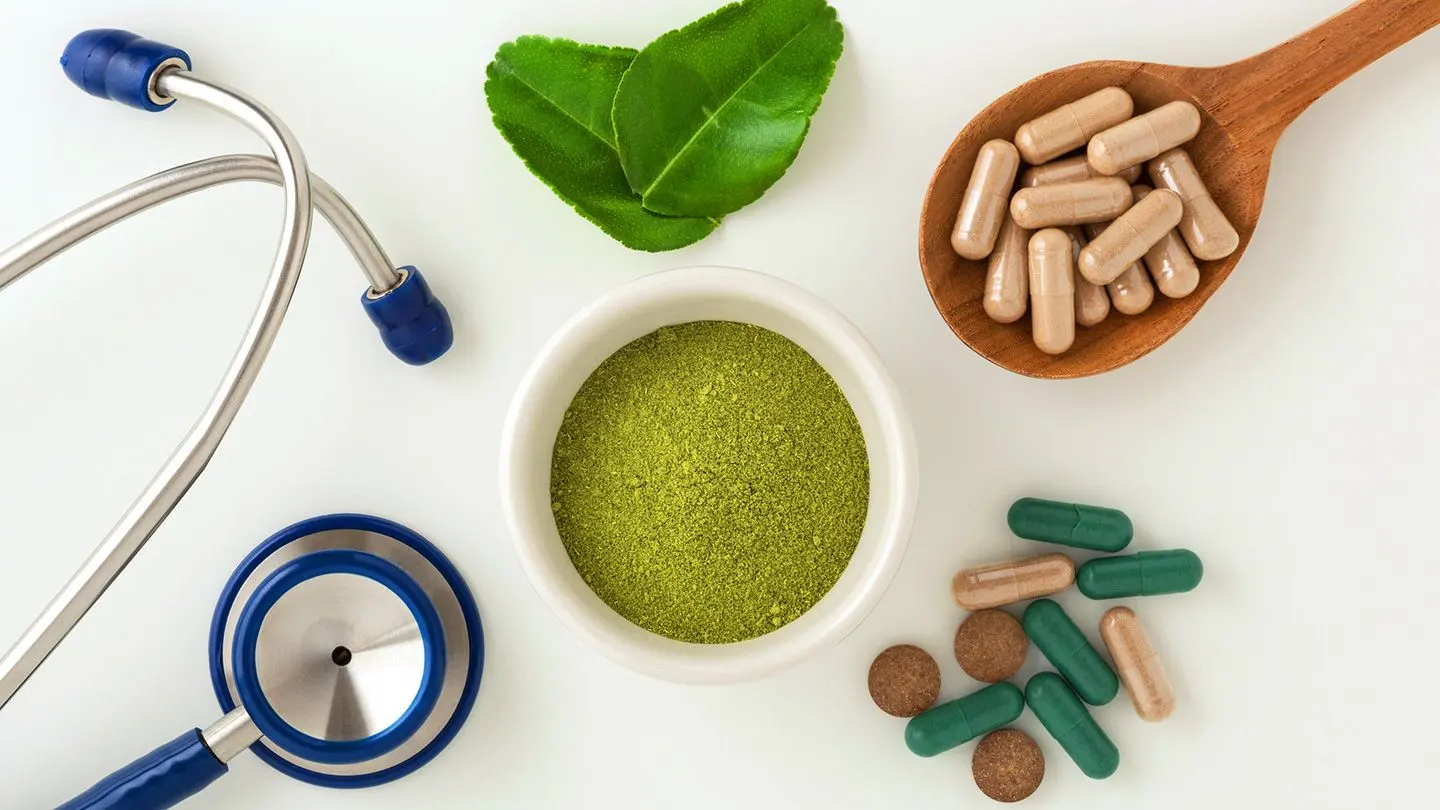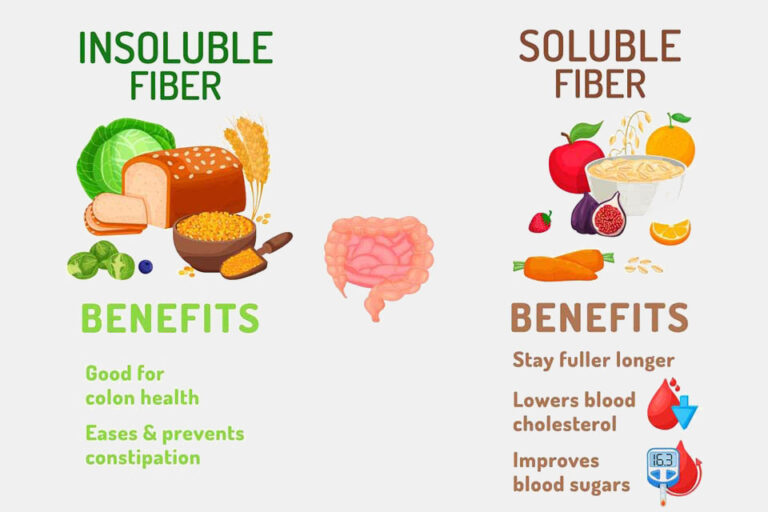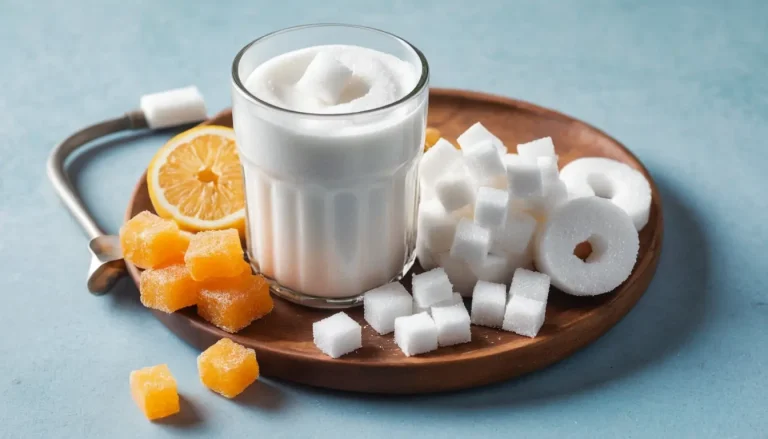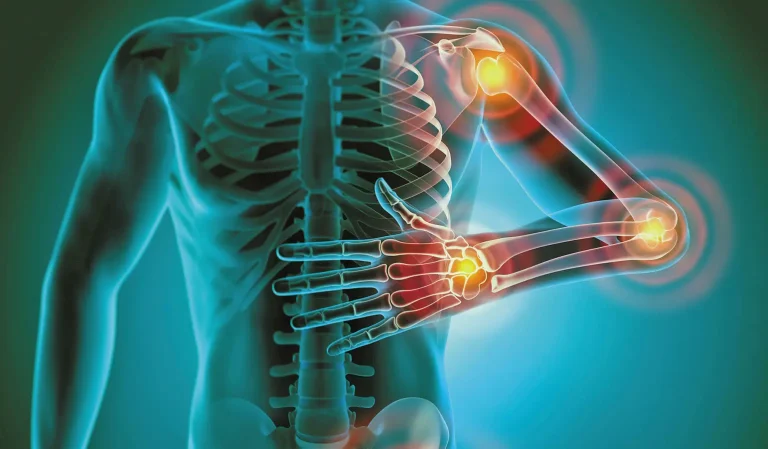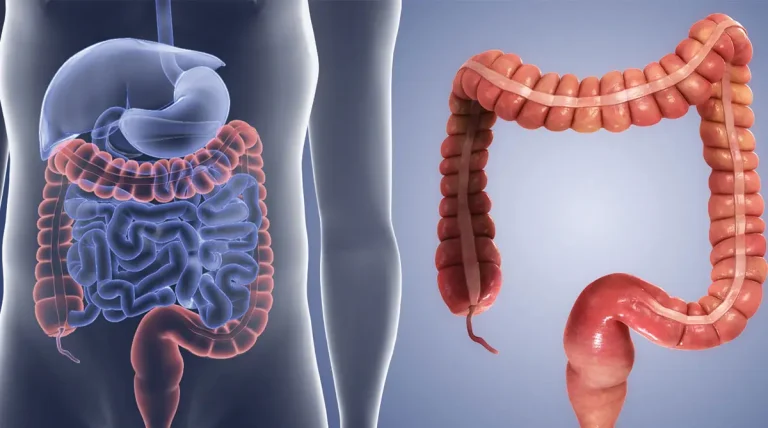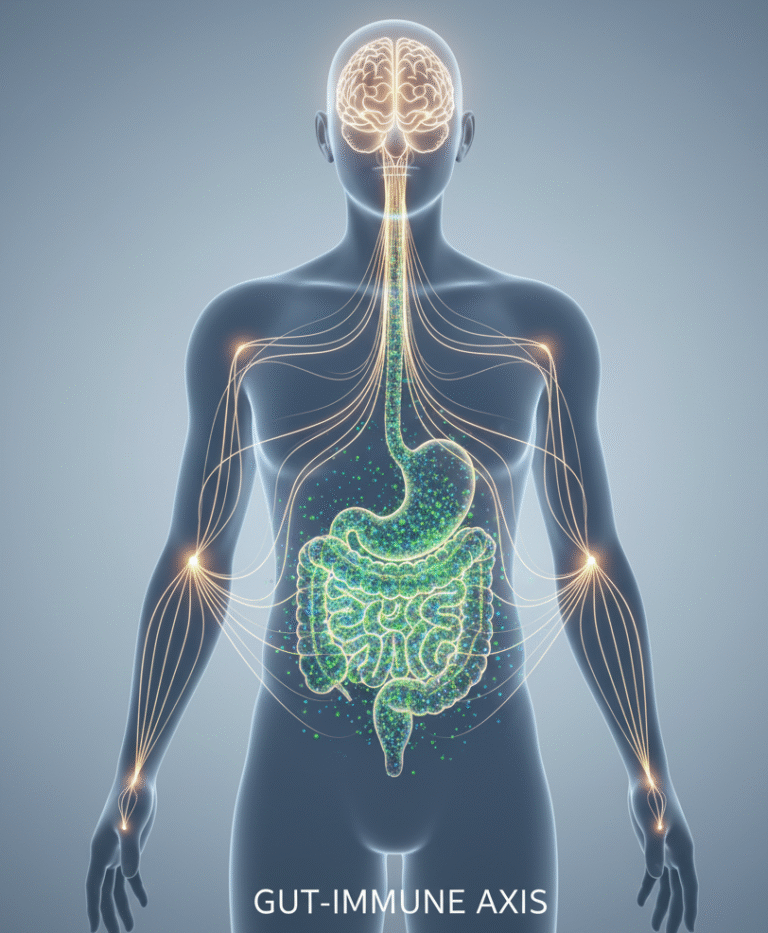Inflammation is your body’s built-in defense mechanism, designed to combat infection, heal injuries, and neutralize toxins. It’s a vital process that safeguards your health. However, when inflammation lingers and becomes chronic, it can contribute to conditions such as cardiovascular disease, diabetes, autoimmune disorders, and even certain cancers.
This article delves into inflammation’s dual nature, explores the factors driving chronic inflammation, and outlines a Functional Medicine approach to identify and address its root causes. You’ll also gain practical strategies to reduce inflammation and enhance overall wellness.
What Is Inflammation?
Inflammation is the body’s natural immune response to injury, infection, or toxins. It’s an essential part of healing, involving immune cells, signaling molecules, and chemical mediators that work together to repair tissue and eliminate threats.
Types of Inflammation
- Acute Inflammation
- Purpose: A short-term response to injury or infection, marked by redness, swelling, heat, and pain.
- Outcome: Resolves once the threat is neutralized and healing occurs.
- Example: A swollen ankle after a sprain.
- Chronic Inflammation
- Purpose: None—chronic inflammation is a dysfunction where the immune response persists unnecessarily.
- Outcome: Can silently damage tissues, disrupt normal function, and increase disease risk.
- Example: Persistent low-grade inflammation seen in autoimmune disorders or metabolic conditions.
Why Chronic Inflammation Is Harmful
Unlike acute inflammation, which is self-limiting, chronic inflammation can lead to ongoing damage. Here’s how it impacts different systems:
- Metabolic Health
- Cytokines like TNF-α disrupt insulin signaling, increasing the risk of type 2 diabetes.
- Excess abdominal fat releases pro-inflammatory mediators, perpetuating a harmful cycle.
- Cardiovascular System
- Chronic inflammation damages arterial walls, contributing to plaque buildup and increasing the risk of heart attacks and strokes.
- Elevated C-reactive protein (CRP) is a key marker of inflammation associated with heart disease.
- Neurological Health
- Prolonged inflammation in the brain can harm neurons, playing a role in Alzheimer’s, Parkinson’s, and depression.
- Immune System
- In autoimmune conditions, inflammation drives the immune system to mistakenly attack healthy tissues.
- Cancer Development
- Persistent inflammation creates an environment conducive to DNA damage, mutations, and tumor growth.
The Role of Oxidative Stress
Inflammation and oxidative stress are closely intertwined. When inflammation is prolonged, immune cells generate excessive reactive oxygen species (ROS)—unstable molecules that damage cells, proteins, and DNA.
Oxidative Stress Mechanisms
- Acute Role: ROS destroy harmful pathogens during infections.
- Chronic Role: Excess ROS, coupled with depleted antioxidant defenses, leads to tissue damage, aging, and chronic disease.
Impact on Health
- Accelerates neurodegeneration.
- Promotes insulin resistance.
- Damages blood vessels, increasing cardiovascular risk.
Triggers of Chronic Inflammation
Identifying and addressing the root causes of inflammation is central to Functional Medicine. Common triggers include:
- Dietary Imbalances
- Excessive sugar and refined carbohydrates fuel pro-inflammatory pathways.
- Imbalanced omega-6 to omega-3 intake contributes to ongoing inflammation.
- Toxins and Environmental Exposures
- Pesticides, heavy metals, and pollutants can disrupt immune regulation.
- Endocrine-disrupting chemicals like BPA impact inflammatory pathways.
- Stress and Sleep Deprivation
- Chronic stress dysregulates cortisol, a hormone that controls inflammation.
- Poor sleep impairs tissue repair and immune function.
- Gut Dysbiosis
- Imbalances in gut bacteria weaken the intestinal barrier, allowing toxins to enter the bloodstream and perpetuate inflammation.
- Infections and Autoimmunity
- Persistent infections or autoimmune flares keep the immune system in a constant state of activation.
Functional Medicine Approach to Inflammation
Functional Medicine offers a comprehensive, personalized strategy to identify and manage inflammation by addressing root causes.
1. Anti-Inflammatory Diet
- Focus on whole, nutrient-dense foods rich in antioxidants and fiber.
- Include omega-3-rich fish, olive oil, nuts, seeds, and colorful fruits and vegetables.
- Limit processed foods, added sugars, and trans fats.
2. Nutritional Supplementation
Supplements and Herbs for Reducing Inflammation
In addition to dietary and lifestyle changes, specific supplements and herbs can play a powerful role in calming inflammation and promoting healing. These natural compounds target inflammatory pathways, balance oxidative stress, and support the body’s natural repair mechanisms.
Key Supplements
- Omega-3 Fatty Acids (EPA/DHA)
- How It Works: Reduces pro-inflammatory eicosanoids and cytokines, promoting an anti-inflammatory state.
- Sources: Fish oil supplements, algae-based omega-3 for vegetarians.
- Evidence: Shown to improve inflammation-related conditions like arthritis and cardiovascular disease.
- Curcumin (from Turmeric)
- How It Works: Blocks NF-κB, a key inflammatory signaling molecule, and acts as a potent antioxidant.
- Optimal Form: Bioavailable forms like curcumin with black pepper extract (piperine) enhance absorption.
- Evidence: Effective for joint pain, digestive inflammation, and general systemic inflammation.
- Quercetin
- How It Works: A flavonoid that stabilizes mast cells and reduces histamine release, benefiting inflammation and allergies.
- Sources: Found in apples, onions, and supplements.
- Evidence: May help reduce markers of oxidative stress and inflammation.
- Vitamin D
- How It Works: Modulates immune function and supports anti-inflammatory pathways.
- Importance: Deficiency is associated with chronic inflammation and autoimmune diseases.
- Sources: Supplements, sunlight exposure.
- Magnesium
- How It Works: Regulates inflammatory cytokines and promotes muscle relaxation, reducing stress-related inflammation.
- Sources: Magnesium glycinate or citrate for supplementation.
- Glutathione
- How It Works: The body’s “master antioxidant,” it neutralizes free radicals and supports detoxification.
- Supplementation: Liposomal or IV forms are highly effective.
- N-Acetylcysteine (NAC)
- How It Works: Precursor to glutathione, NAC supports detoxification and reduces oxidative stress.
- Evidence: Often used for respiratory and systemic inflammatory conditions.
Anti-Inflammatory Herbs
- Boswellia Serrata (Frankincense)
- How It Works: Inhibits 5-lipoxygenase (5-LOX), a key enzyme in inflammatory pathways.
- Evidence: Shown to improve joint health and reduce pain in osteoarthritis.
- Ginger
- How It Works: Contains gingerols and shogaols, compounds with potent anti-inflammatory and antioxidant properties.
- Uses: Helpful for digestive issues, muscle soreness, and systemic inflammation.
- Green Tea Extract (EGCG)
- How It Works: Polyphenols in green tea reduce inflammatory markers and combat oxidative stress.
- Evidence: Effective in supporting cardiovascular health and reducing inflammation-related diseases.
- Ashwagandha
- How It Works: An adaptogen that lowers cortisol levels and reduces inflammation linked to stress.
- Uses: Beneficial for managing chronic stress and its inflammatory effects.
- Milk Thistle (Silymarin)
- How It Works: Supports liver detoxification, reducing inflammation triggered by toxin buildup.
- Evidence: Protects against oxidative stress and inflammation in liver-related conditions.
- Cinnamon
- How It Works: Contains cinnamaldehyde, which has anti-inflammatory and antimicrobial properties.
- Uses: May reduce inflammation in metabolic conditions like insulin resistance.
- Resveratrol
- How It Works: A polyphenol found in grapes and berries, it reduces oxidative damage and inflammatory signaling.
- Evidence: Supports cardiovascular health and mitigates inflammation in metabolic conditions.
How to Use These Supplements and Herbs
- Personalized Plans: Always consult with a Functional Medicine practitioner to determine the appropriate supplements and dosages for your unique health needs.
- Quality Matters: Choose high-quality, practitioner-grade supplements to ensure purity and potency.
- Integration: Combine these with an anti-inflammatory diet and lifestyle changes for the best results.
3. Lifestyle Modifications
- Regular Exercise: Engage in moderate-intensity workouts to lower inflammation.
- Stress Reduction: Incorporate mindfulness, yoga, or deep breathing.
- Adequate Sleep: Aim for 7–9 hours of quality sleep nightly.
4. Advanced Therapies
- IV Therapy: Replenish nutrients and antioxidants directly.
- Gut Health Testing: Assess microbiome composition to identify dysbiosis.
Takeaway Messages
- Inflammation’s Dual Role: While critical for healing, chronic inflammation can silently drive diseases like diabetes, heart disease, and cancer.
- Root Causes Matter: Diet, environmental exposures, stress, and gut health play significant roles in perpetuating inflammation.
- Functional Medicine Solutions: Personalized care, addressing root causes, can effectively reduce inflammation and restore balance.
References
- Calder PC. Omega-3 fatty acids and inflammatory processes. Nutrients. 2013;5(3):645-674. J, Milani RV, Mehra MR, Ventura HO. Omega-3 polyunsaturated fatty acids and cardiovascular diseases. J Am Coll Cardiol. 2009;54(7):585-594.
- Aggarwal BB, Harikumar KB. Potential therapeutic effects of curcumin, the anti-inflammatory agent. Biochem Pharmacol. 2009;78(11):1590-1601.
- Hewlings SJ, Kalman DS. Curcumin: A review of its effects on human health. Foods. 2017;6(10):92.
- Boots AW, Haenen GR, Bast A. Health effects of quercetin: from antioxidant to nutraceutical. Eur J Pharmacol. 2008;585(2-3):325-337.
- Holick MF. Vitamin D and inflammation. Nutr Rev. 2007;65(12 Pt 2):S140-S146.
- Zheltova AA, Kharitonova MV, Maryanovich AS, et al. Magnesium deficiency and inflammation. J Inflamm Res. 2016;9:65-74.
- Townsend DM, Tew KD, Tapiero H. The importance of glutathione in human disease. Biomed Pharmacother. 2003;57(3-4):145-155.
- Samuni Y, Goldstein S, Dean OM, Berk M. The chemistry and biological activities of N-acetylcysteine. Biochim Biophys Acta. 2013;1830(8):4117-4129.
- Sengupta K, Alluri KV, Satish AR, et al. A double-blind, randomized, placebo-controlled study of Boswellia serrata extract. Arthritis Res Ther. 2008;10(4):R85.
- Mashhadi NS, Ghiasvand R, Askari G, et al. Anti-inflammatory and antioxidant effects of ginger. Int J Prev Med. 2013;4(4):36-42.
- Yang CS, Wang H, Chen JX. Green tea and cancer prevention. Mol Nutr Food Res. 2016;60(1):133-150.
- Choudhary D, Bhattacharyya S, Bose S. Efficacy and safety of ashwagandha root extract. J Ethnopharmacol. 2017;195:39-47.
- Loguercio C, Festi D. Silybin and the liver: from basic research to clinical practice. World J Gastroenterol. 2011;17(18):2288-2301.
- Allen RW, Schwartzman E, Baker WL, Coleman CI. Cinnamon use in type 2 diabetes. Ann Fam Med. 2013;11(5):452-459.
- Baur JA, Sinclair DA. Therapeutic potential of resveratrol. Nat Rev Drug Discov. 2006;5(6):493-506.
Next Steps
If chronic inflammation is affecting your health, a Functional Medicine approach can help identify the underlying triggers and provide personalized strategies for long-term well-being.
Book Your Consultation Today
Disclaimer: This article is provided for educational purposes only and does not substitute professional medical advice. Always consult with a qualified healthcare provider for personalized evaluation and treatment.

